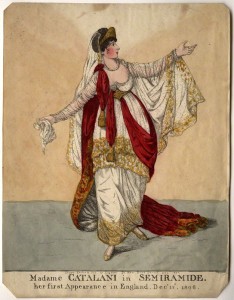Cornish women 100 years ago
/What will historians of the future say about the lives of women of Cornwall and Scilly in 2013?
To mark International Women's Day today, we wanted to share some stories that were in our newspapers 100 years ago. They say good women don't make the news (or history) and judging by the following we agree! What will historians of the future say about the lives of women of Cornwall and Scilly in 2013? In 2113 what will historians of the future say about the lives of women of Cornwall and Scilly in 2013?
Woman arrests woman for stealing fuel
Turf-stealing at Alternun, 30 April.
Elizabeth Williams of Alternun was charged with having stolen 100 tabs and 100 turfs belonging to William Hooper. The parties were reported as being poor cottagers who lived near a common from where they cut turf for fuel. They each had a rick of turf on the common. It was the daughter of the prosecutor whose suspicions were aroused when she saw Elizabeth visit her father's rick instead of her own on 25 February. On seeing Elizabeth take from Hooper's rick, she went up to her and charged her with the theft. This was denied by Elizabeth who protested her innocence and said she had taken from her own rick. Although Elizabeth, described by the reporter as 'the prisoner', had no witnesses she retained that the turf was her own. She was acquitted.
Four Falmouth Madams fined and imprisoned
Houses of ill-fame at Falmouth, 30 April.
Catherine Mitchell was found guilty of keeping a brothel, or house of ill-fame, in Falmouth. She was sentenced to imprisonment for two months and made to pay a £10 fine. She was to be kept imprisoned until she could pay.
Elizabeth Tresidder was accused of committing a similar offence in Budock (also in the Falmouth area) and was sentenced to a fortnight's imprisonment and fined one shilling.
Ann Lampshire was found guilty of keeping a disorderly house in Budock and was imprisoned for one month as punishment, and fined a shilling.
Matilda Lisle was charged with frequenting houses of ill-fame and reprimanded by the chairman and then discharged.
Desperate St Agnes couple die collecting samphire rather than claim poor relief
Gathering samphire on the cliffs, 11 June.
A man named Mark Thomas and his wife (unnamed in the story) were the parents of four infants. Desperate to earn money they went to the cliffs at Perran to collect samphire. He clutched the cliff rocks, pulled out samphire and passed it to his wife below. He lost his footing as part of the rock gave way and he fell onto his wife and then both fell down 100 feet and landed three yards from each other. They took these desperate measures to earn money so they wouldn't have to go to the parish for poor relief.
Milk theft incurs severest punishment
Stealing milk from a cow, 16 July.
The Cornwall Quarter Sessions heard the case of Ann Holman. She was found guilty of stealing milk from a cow belonging to James Grey. She was harshly sentenced to two months imprisonment as the Bench wanted to make an example of her and her crime, as milk theft was becoming too common.
Woman who sets fire to a man's corn is hanged
Cornwall Assizes, 20 August.
Elizabeth Osborne was convicted of setting fire to a mow of corn belonging to John Lobb and sentenced to be hanged.
Unknown young pregnant woman takes her life with arsenic
Buried where four roads meet, 20 August.
The body of a young woman was buried at a place where four roads meet in the parish of Morvah. She was pregnant "in consequence of an illicit intercourse" and committed suicide by poisoning herself with arsenic.
The burial of people who committed suicide usually happened under cover of darkness and were not allowed in church graveyards until a period of 14 years had passed, and then without a service.

Italian Diva to delight Truro music festival
The Cornwall Music Festival, 27 August.
Madame Catalini, a celebrated singer, was due to feature in the Cornwall Music Festival in Truro Assembly Rooms, having "completely charmed the good people at Exeter." It was to be attended by nearly all the gentry of Cornwall.
These excerpts are paraphrased from a compilation of news items in the West Briton, 1810-1835 selected by R.M. Barton and reproduced in Life in Cornwall (Dyllansow Truran, 1997).


